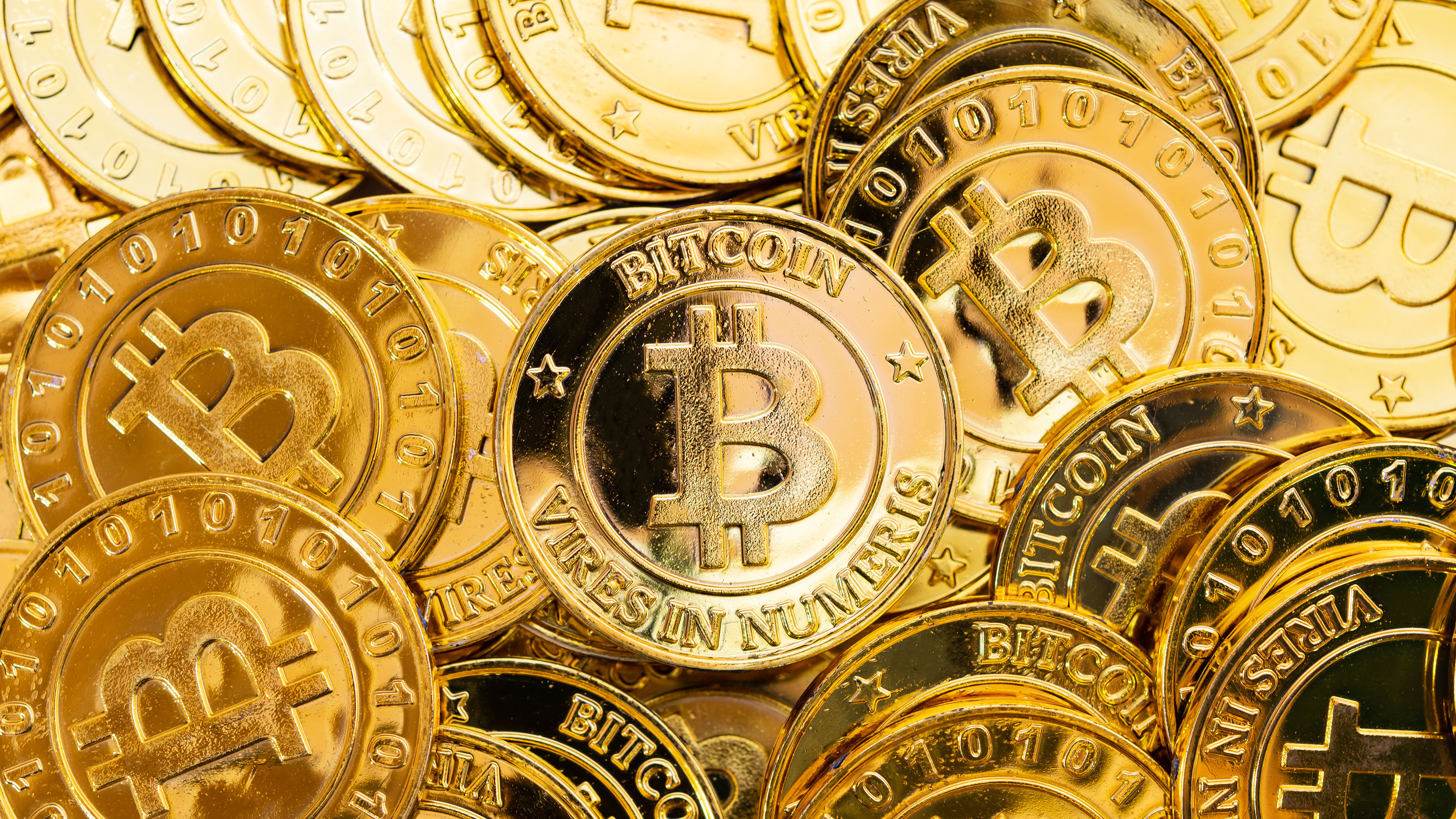
Profit and prosper with the best of Kiplinger's advice on investing, taxes, retirement, personal finance and much more. Delivered daily. Enter your email in the box and click Sign Me Up.
You are now subscribed
Your newsletter sign-up was successful
Want to add more newsletters?

Delivered daily
Kiplinger Today
Profit and prosper with the best of Kiplinger's advice on investing, taxes, retirement, personal finance and much more delivered daily. Smart money moves start here.

Sent five days a week
Kiplinger A Step Ahead
Get practical help to make better financial decisions in your everyday life, from spending to savings on top deals.

Delivered daily
Kiplinger Closing Bell
Get today's biggest financial and investing headlines delivered to your inbox every day the U.S. stock market is open.

Sent twice a week
Kiplinger Adviser Intel
Financial pros across the country share best practices and fresh tactics to preserve and grow your wealth.

Delivered weekly
Kiplinger Tax Tips
Trim your federal and state tax bills with practical tax-planning and tax-cutting strategies.

Sent twice a week
Kiplinger Retirement Tips
Your twice-a-week guide to planning and enjoying a financially secure and richly rewarding retirement

Sent bimonthly.
Kiplinger Adviser Angle
Insights for advisers, wealth managers and other financial professionals.

Sent twice a week
Kiplinger Investing Weekly
Your twice-a-week roundup of promising stocks, funds, companies and industries you should consider, ones you should avoid, and why.

Sent weekly for six weeks
Kiplinger Invest for Retirement
Your step-by-step six-part series on how to invest for retirement, from devising a successful strategy to exactly which investments to choose.
Long-term investors know the key to success is time in the market. But as the recent performance of the new bitcoin exchange-traded funds shows, over the short term, timing the market has an impact, too.
If you bought into one of the new bitcoin ETFs within the first few weeks of their January 10 approval by the Securities and Exchange Commission, congratulations! In the six months that ended July 31, the median return for the first 10 funds that invest directly in bitcoin was 53.5%.
Nine of the 10 have nearly identical returns, ranging from 53.7% by Franklin Bitcoin (symbol EZBC) to 53.3% for Fidelity Wise Origin Bitcoin ETF (FBTC). All 10 trounced the 14.8% return of the S&P 500 over the period. (Bitcoin itself was up some 52%, measured by closing prices. Funds buy throughout the day, which accounts for some of the discrepancy.)
From just $107.88 $24.99 for Kiplinger Personal Finance
Become a smarter, better informed investor. Subscribe from just $107.88 $24.99, plus get up to 4 Special Issues

Sign up for Kiplinger’s Free Newsletters
Profit and prosper with the best of expert advice on investing, taxes, retirement, personal finance and more - straight to your e-mail.
Profit and prosper with the best of expert advice - straight to your e-mail.
If you waited a few months and jumped into the bitcoin pool at the end of March, condolences. You’re down about 7% over the past four months; investors in the S&P 500, meanwhile, gained 5.5%.
The similarity in the funds’ performance is not surprising, considering that expenses are also (mostly) comparable. Franklin’s fees are 0.19%; three of the ETFs currently charge 0.25%.
The outlier is the first bitcoin fund, Grayscale Bitcoin Trust (GBTC), charging 1.5%. Its six-month returns appear to lag significantly, but it’s important to note that on July 30, Gray-scale converted 10% of its shares into shares of its newly issued Grayscale Bitcoin Mini Trust (BTC), which has a low expense ratio of 0.15%. Investors in the original fund received shares in the new ETF, and the original fund’s returns were reduced by the spin-off. Prior to the spin-off, the Grayscale Bitcoin Trust’s returns were at the rear of the pack, but still competitive.
Buying stampede. Despite the funds’ volatility, investors have poured a cumulative $17.5 billion into digital-currency ETFs so far this year, according to fund research firm VettaFi. The iShares Bitcoin Trust (IBIT) has become the single most successful ETF launch in history, rising from nothing to $21.5 billion in assets in seven months.
The flow of dollars has sparked the launch of other cryptocurrency funds. On July 22, the SEC approved eight ETFs that invest directly in the second-largest digital currency, ethereum.
Crypto funds can add a little diversification to portfolios and give intrepid investors an easy way participate in the growth of new financial technologies, says Aniket Ullal, head of ETF data and analytics at CFRA Research. But he warns that cryptocurrencies are more than twice as volatile as the S&P 500, and they aren’t a perfect counterweight to stocks. Bitcoin plunged along with stocks in 2022, and struggled in this year’s summer sell-off.
Even the most enthusiastic cryptocurrency investors should pay close consideration to basics such as cost and volatility, says Bryan Armour, head of index fund and ETF research at Morningstar. He suggests keeping an allocation to crypto below 3% of portfolio holdings. “And if investors are wary of or don’t understand crypto, it’s completely okay not to invest,” he says. “Fear of missing out is never a good investment strategy.”
Note: This item first appeared in Kiplinger Personal Finance Magazine, a monthly, trustworthy source of advice and guidance. Subscribe to help you make more money and keep more of the money you make here.
Related Content
Profit and prosper with the best of Kiplinger's advice on investing, taxes, retirement, personal finance and much more. Delivered daily. Enter your email in the box and click Sign Me Up.

Kim Clark is a veteran financial journalist who has worked at Fortune, U.S News & World Report and Money magazines. She was part of a team that won a Gerald Loeb award for coverage of elder finances, and she won the Education Writers Association's top magazine investigative prize for exposing insurance agents who used false claims about college financial aid to sell policies. As a Kiplinger Fellow at Ohio State University, she studied delivery of digital news and information. Most recently, she worked as a deputy director of the Education Writers Association, leading the training of higher education journalists around the country. She is also a prize-winning gardener, and in her spare time, picks up litter.
-
 Stocks Sink With Alphabet, Bitcoin: Stock Market Today
Stocks Sink With Alphabet, Bitcoin: Stock Market TodayA dismal round of jobs data did little to lift sentiment on Thursday.
-
 Betting on Super Bowl 2026? New IRS Tax Changes Could Cost You
Betting on Super Bowl 2026? New IRS Tax Changes Could Cost YouTaxable Income When Super Bowl LX hype fades, some fans may be surprised to learn that sports betting tax rules have shifted.
-
 How Much It Costs to Host a Super Bowl Party in 2026
How Much It Costs to Host a Super Bowl Party in 2026Hosting a Super Bowl party in 2026 could cost you. Here's a breakdown of food, drink and entertainment costs — plus ways to save.
-
 Stocks Sink With Alphabet, Bitcoin: Stock Market Today
Stocks Sink With Alphabet, Bitcoin: Stock Market TodayA dismal round of jobs data did little to lift sentiment on Thursday.
-
 The 4 Estate Planning Documents Every High-Net-Worth Family Needs (Not Just a Will)
The 4 Estate Planning Documents Every High-Net-Worth Family Needs (Not Just a Will)The key to successful estate planning for HNW families isn't just drafting these four documents, but ensuring they're current and immediately accessible.
-
 Love and Legacy: What Couples Rarely Talk About (But Should)
Love and Legacy: What Couples Rarely Talk About (But Should)Couples who talk openly about finances, including estate planning, are more likely to head into retirement joyfully. How can you get the conversation going?
-
 How to Get the Fair Value for Your Shares When You Are in the Minority Vote on a Sale of Substantially All Corporate Assets
How to Get the Fair Value for Your Shares When You Are in the Minority Vote on a Sale of Substantially All Corporate AssetsWhen a sale of substantially all corporate assets is approved by majority vote, shareholders on the losing side of the vote should understand their rights.
-
 Dow Leads in Mixed Session on Amgen Earnings: Stock Market Today
Dow Leads in Mixed Session on Amgen Earnings: Stock Market TodayThe rest of Wall Street struggled as Advanced Micro Devices earnings caused a chip-stock sell-off.
-
 How to Add a Pet Trust to Your Estate Plan: Don't Leave Your Best Friend to Chance
How to Add a Pet Trust to Your Estate Plan: Don't Leave Your Best Friend to ChanceAdding a pet trust to your estate plan can ensure your pets are properly looked after when you're no longer able to care for them. This is how to go about it.
-
 Want to Avoid Leaving Chaos in Your Wake? Don't Leave Behind an Outdated Estate Plan
Want to Avoid Leaving Chaos in Your Wake? Don't Leave Behind an Outdated Estate PlanAn outdated or incomplete estate plan could cause confusion for those handling your affairs at a difficult time. This guide highlights what to update and when.
-
 I'm a Financial Adviser: This Is Why I Became an Advocate for Fee-Only Financial Advice
I'm a Financial Adviser: This Is Why I Became an Advocate for Fee-Only Financial AdviceCan financial advisers who earn commissions on product sales give clients the best advice? For one professional, changing track was the clear choice.
